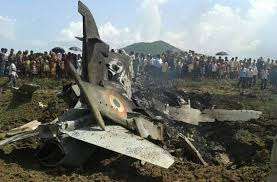February 27, 2019 will haunt the Indian government for years to come. What was envisioned as an election-winning stunt turned into a major disaster. In February 2019, a suicide attack was carried out on a convoy of Indian Armed Forces in which 44 soldiers lost their lives .The Modi regime held Pakistan responsible for this attack without any concrete proof; and devised a strategy to enthral his Hindu-hardliners who have an avid appetite for aggressive postures against the latter. On the night of February 26, 2019, Indian jets penetrated a few kilometres into Pakistani territory which was later followed by false claims that they had bombed terrorist compounds and killed 300 terrorists.
These strikes were a clear violation of Article 2 (4) of the United Nations Charter. On the morning of February 27, the Pakistan Air Force (PAF) demonstrated its professionalism and competence when it targeted locations across the Line of Control making sure that no substantial damage was done. Moreover, during the aerial engagement that took place between the Indian and Pakistani aircraft, the PAF was able to take down an Indian MiG-21 and Su-30. The pilot of the MiG-21, Wing Commander Abhinandan ejected from his aircraft and was taken into Pakistani custody.
The way this situation was tackled by Pakistan’s government and the military leadership is commendable. On the one side, the government exhibited a very responsible, calibrated, and measured response. Briefly after the Pulwama incident, the Prime Minister of Pakistan, Imran Khan made a very precise and calculated speech in which he declared that if India had any credible proof that Pakistan was in any way associated with that attack, then it should share it with Pakistani authorities and the matter would be investigated. Moreover, he also warned that if any aggressive action was taken by the Indian side, it would be met with an apt response. This speech aged extremely well when the Indian side acknowledged the loss of the MiG-21 in the aerial engagement with Pakistani aircraft. Moreover, as a gesture of peace, Pakistan released the Indian pilot across the Wagah border. Interestingly, it was only in October 2020 when the Press Trust of India made public that the Indian Air Force had also shot down one of their own helicopters (Budgam Mi-17), killing 6 personnel on February 27, 2019 during their encounter with the PAF aircraft.
Meanwhile, on the military front, the Pakistan Air Force not only manifested its air power capabilities, but also made sure that the enemy understood that the PAF knows how to defend their motherland.
India’s military adventure did not end on February 27, rather its intent to use missiles against Pakistan when the standoff was at its peak was indicative of its aggressive and reckless designs. Moreover, an Indian submarine was also detected in Pakistan’s maritime zone on March 4, 2019 which was blocked from entering our territorial waters by the Navy.
In its hubris, the RSS-inspired government in New Delhi did not envision its strategy backfiring in such a terrible way. The message that Pakistan wanted to signal to its arch-rival was that it wants peace in the region and does not want to further aggravate hostilities existing between the two nuclear-armed neighbours. At the same time, the Pakistan Air Force demonstrated that any attempt to carry out a dangerous adventure to challenge the sovereignty of the country, would be met with a befitting response. In the future, if the Indian leadership decides to resort to similar tactics, it would have to bear the same humiliation as was witnessed on February 27, 2019.
Last month, the leaked WhatsApp conversation of the Indian journalist Arnab Goswami proved that Pulwama did not happen on its own rather it was made to happen with the sole purpose to garner more votes for BJP’s re-election bid. The Indian government used their Armed Forces against Pakistan as a short-cut to entice their supporters which reveals the true intentions of the Modi regime. One can draw many lessons from what happened between Pakistan and India in 2019 during this crisis. Some of the most important ones are as follows:
- Despite being nuclear powers, the possibility of India and Pakistan indulging in a conflict will always remain.
- The RSS-inspired BJP will remain inclined to take aggressive actions against Pakistan to impress its domestic supporters.
- As long as Narendra Modi remains in power, there are ample chances of minor and major confrontation between India and Pakistan.
- India craves for conventional application of its military forces in a nuclear overhang to assert its supremacy in the region.
- The effective use of airpower will play a decisive factor in any future South Asian conflict. The loss of 2 Indian aircraft proves that training plays a pivotal role regardless of better technology or numerical supremacy.
- Despite dangerous escalation from the Indian side, its economic ingress and clout continue to ensure that it receive preferential treatment and support from the international community and Western powers. Given India’s quest for upgrading and diversifying its weapons and equipment basket from multiple suppliers, Pakistan needs to reassess its warfighting capabilities for the future.
Pakistan has always tried to mend the strained relations between both countries. However, the irresponsible conduct of the Indian side has made it impossible to engage in any constructive dialogue which is ultimately adversely impacting regional stability. As we celebrate the second anniversary of Operation Swift Retort, we can rest assured that the Pakistan Air Force is ready to give an apt response to any Indian misadventure.
Shaza Arif is a Researcher at the Centre for Aerospace & Security Studies (CASS). The article was first published in REGIONAL TIMES. She can be reached at cass.thinkers@gmail.com




